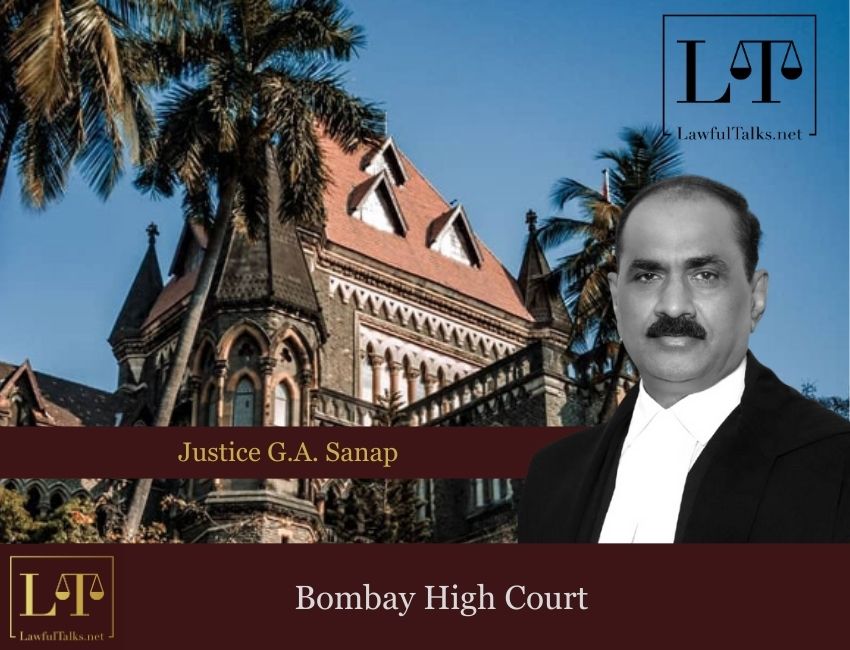Allahabad HC Sets Aside Afzal Ansari's Conviction, Allows Him to Continue as MP

In a recent judgement, the Bombay High Court, Nagpur Bench, presided by Justice G.A. Sanap addressed procedural flaws in the conviction of two appellants under the Narcotic Drugs and Psychotropic Substances Act, 1985 (NDPS Act). The appellants, Kailas s/o Bajirao Pawar and Raju Motiram Solanke, had been convicted for offences punishable under Section 8(c) read with Section 20(c) of the NDPS Act for possession of ganja, which they intended to sell. Both appellants were sentenced to 12 years of rigorous imprisonment and a fine of ₹1,20,000 each, with an additional three years of imprisonment upon default of payment.

The background of the case reveals that on September 23, 2020, Police Inspector Sagar Hatwar (PW-7) received secret information about the appellants possessing ganja for sale in a hut within the jurisdiction of Akot Gramin Police Station. The police, after taking necessary precautions and following procedures, raided the hut and recovered 39 kg of ganja, which was found in 18 plastic packets. The ganja was weighed, and three samples of 100 grams each were drawn in the presence of panch witnesses. The appellants stated that the ganja was procured from one Shatrughna Chavhan, who was also implicated in the case. A subsequent raid at Shatrughna's house led to the seizure of 107.9 kg of ganja. The entire process was video-recorded by a photographer.
The appellants raised several points of contention during their appeals, primarily focusing on procedural lapses and evidentiary flaws. They argued that the prosecution had failed to comply with the provisions of Sections 42(2), 50, and 57 of the NDPS Act, which relate to the proper recording of information and the rights of the accused during searches. Specifically, the appellants contended that Section 50 of the NDPS Act was not complied with, as they were not provided with a proper opportunity to be searched in the presence of a magistrate or a gazetted officer. However, the Court noted that:
“compliance of Section 50 of the NDPS Act would not be necessary inasmuch as the recovery was made from the hut and not from the person of the appellants. The personal search of the appellants was not conducted”
A more significant issue raised in the appeal was the failure to properly authenticate and admit the video evidence recorded during the raid. The Court highlighted the procedural failure in the admission of the video recording, which was a critical piece of evidence in this case. The video recording, which captured the entire raid, including the inspection of the hut and the seizure of the ganja, was not played in court during the testimony of the witnesses. As per the Court:
“The video recording or CCTV footage without proper evidence to prove the contents of the video recording cannot be made use of against the accused”
The Court stressed that the video evidence had not been converted into legally admissible evidence as per the established procedures, which resulted in a miscarriage of justice.
Another important flaw identified by the Court was the failure of the prosecution to examine the Chemical Analyst (CA), despite the CA report confirming that the substance was indeed ganja. The Court observed that:
“The examination of the CA, in the case of the analysis of ganja, is very important because, in the report of the CA the description of the substance in detail is recorded invariably. The description of the substance, seized as a ganja, is required to be proved to bring it within the amsbit of the definition of ganja under Section 2(iii)(b) of the NDPS Act. ”
The prosecution's failure to produce the remnant samples from the CA's office further compounded this issue. The Court noted that the absence of the CA's testimony made the substance's identity unproven beyond reasonable doubt.
Furthermore, the Court pointed out that the panchanama, which is a key document in such cases, failed to provide a detailed description of the seized ganja. The Court emphasised that the description of the substance was crucial to linking it to the statutory definition of ganja under the NDPS Act.
In reviewing the trial process, the Court criticised the trial judge's failure to properly follow the procedure for admitting and recording electronic evidence, particularly the video recording of the raid. The Court explained:
“The electronic evidence…cannot be admitted as it is. Proper care and procedure are required to be followed”
The Court further remarked that the video recording should have been played in court at the time of recording the witnesses' testimonies, allowing each witness to describe the events as seen in the video. This failure rendered the video evidence inadmissible.
The Court also criticized the prosecution's failure to recommend an appeal against the acquittal of accused No. 3, Shatrughna Chavhan, despite substantial evidence implicating him in the crime. This omission raised questions about the thoroughness of the prosecution's case.
Given these procedural lapses, the Court quashed the convictions of the appellants and ordered a retrial. The matter was remanded back to the learned Additional Sessions Judge, Akot, with directions to ensure the meticulous recording of evidence, particularly the video evidence, and to examine the CA. The Court further directed that the retrial be concluded within three months.
Case Details- Kailas s/o Bajirao Pawar v. State of Maharashtra.
Advocates for the Appellants-Mr A. S. Mardikar, Sr. Adv., Mr. Ved Deshpande Mr. K.H. Anandani, Mr. Bhavin Suchak, Mr.V.D. Ruparelia
Advocates for the Respondents- Mr. A.M. Joshi, APP



































































































































































































































































































































































































































































































































































































































































































